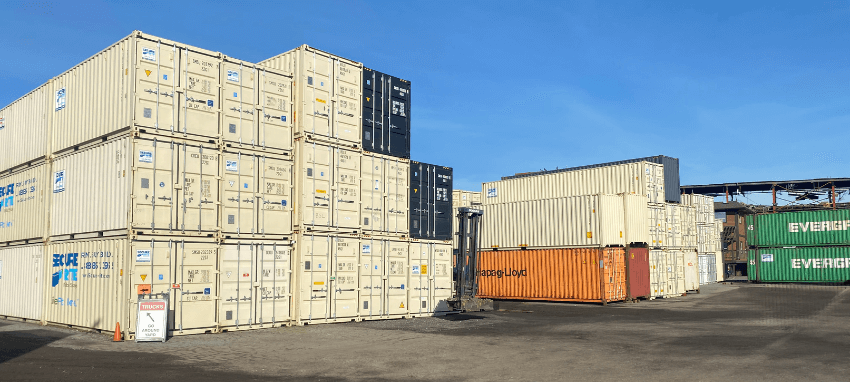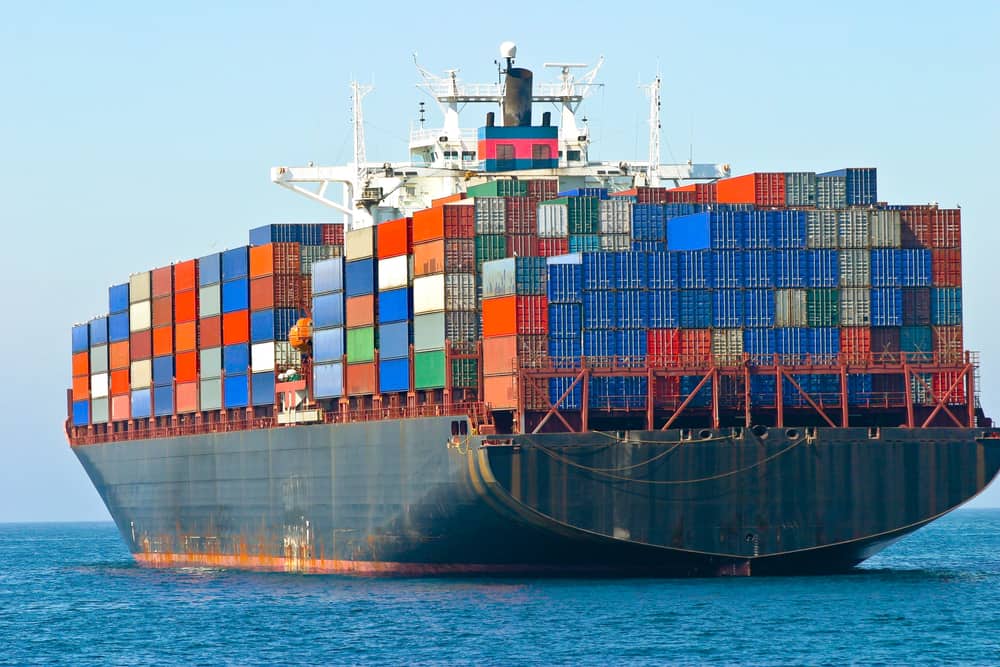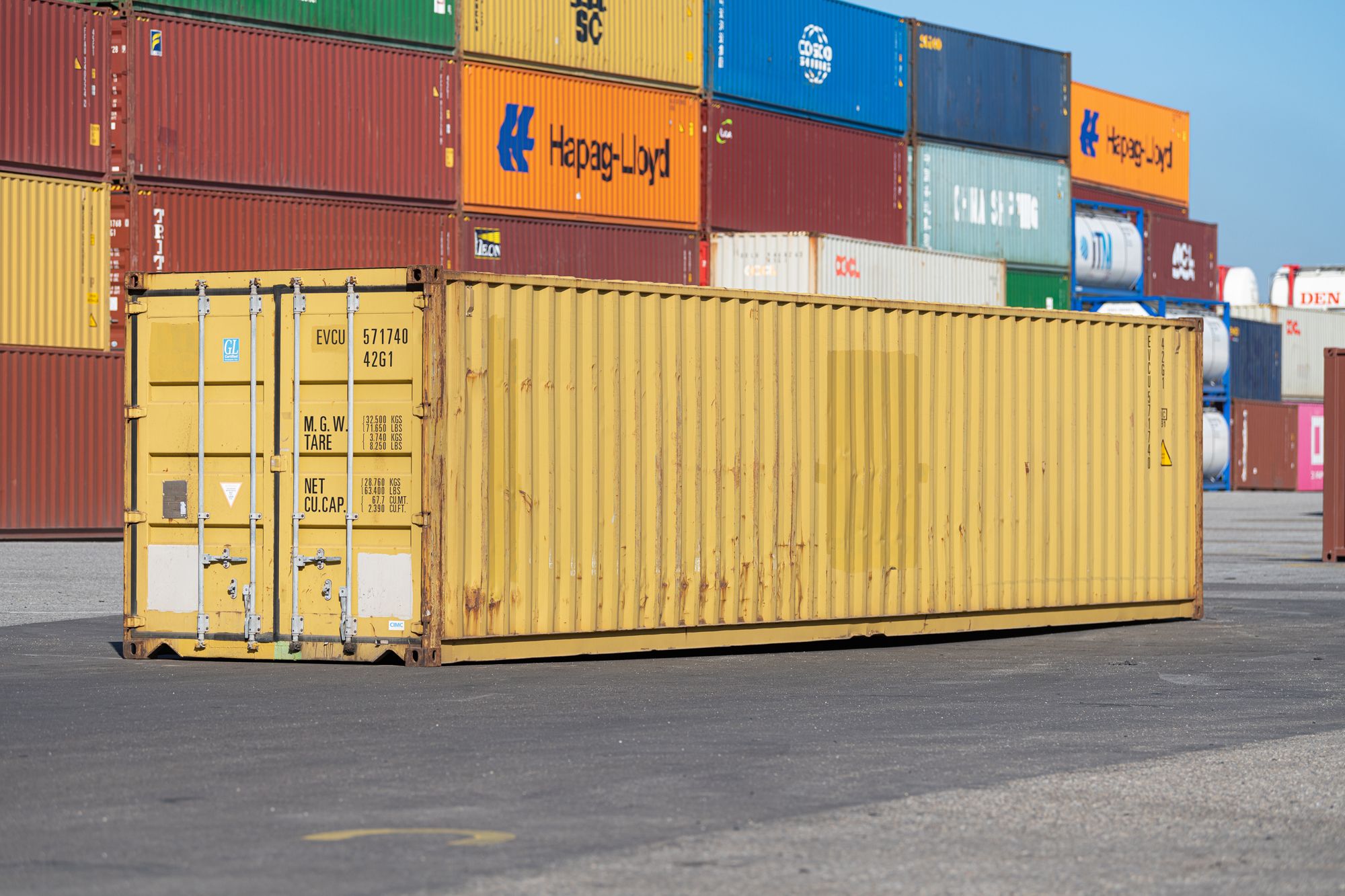Why shipping container storage is solving disaster relief logistics
Everything You Need to Know Concerning Shipping Containers and Their Practical Applications
Shipping containers have actually progressed from plain tools for transportation to functional structures with countless useful applications. Their durable design and basic sizing make them ideal for a variety of uses beyond shipping. From innovative real estate services to lasting farming, their versatility is significant. The opportunities do not end there. Discovering their different features reveals shocking understandings right into imaginative solutions and modern-day obstacles. What other functions could these containers play in today's globe?
The Layout and Framework of Shipping Containers

Inside, containers are created to make the most of area, typically including wooden or steel floor covering that can sustain significant weight. Air flow systems may be included to avoid dampness build-up, which is vital for delicate cargo. In addition, strengthened corners permit very easy handling by forklifts and cranes, helping with smooth loading and discharging. This thoughtful style and structure add to the containers' flexibility throughout various delivery and storage space applications.
Advantages of Utilizing Shipping Containers
While many transportation techniques have their advantages, making use of shipping containers sticks out due to their unrivaled adaptability and performance. Shipping containers provide a standard size, making them simple to transfer and stack across different modes of transport, including ships, vehicles, and trains. This standardization decreases filling and discharging times, thereby raising total efficiency.
Shipping containers are built from long lasting materials, supplying durable defense for goods throughout transportation. They are weather-resistant and safe, lessening the threat of damages from environmental factors or theft. In addition, the modular design of delivery containers enables simple modification, enabling businesses to adjust them for numerous objectives, such as storage space or mobile workplaces.
Lastly, their portability and cost-effectiveness make delivery containers an eye-catching option for services looking to improve logistics and supply chain operations. These benefits add to the expanding appeal of delivery containers in different industries.
Innovative Real Estate Solutions With Shipping Containers
Ingenious housing services have emerged as an amazing application of delivery containers, leveraging their intrinsic staminas for residential usage. These flexible frameworks provide a sustainable option to conventional building products, frequently at a portion of the cost. Architects and developers have actually changed containers right into trendy, practical homes, accommodating varied lifestyles and preferences.

In addition, delivering containers are eco-friendly, advertising recycling and decreasing waste. Many tasks concentrate on power performance, integrating green roofing systems and solar panels. As urbanization increases, these ingenious housing remedies provide a useful action to housing shortages while promoting an unique architectural aesthetic.
Shipping Containers in Retail and Pop-Up Shops
A growing variety of stores are transforming to delivering containers as a vibrant option for pop-up stores and retail spaces. These functional frameworks use an economical alternative to traditional store fronts, allowing services to develop one-of-a-kind, distinctive atmospheres that bring in clients. Their modular design enables easy transport and setup, making them ideal for momentary or seasonal retail areas.
Retailers can tailor delivery containers to show their brand name identification, transforming them right into visually appealing shops that stand out in jampacked industries. The compact nature of containers additionally encourages reliable use of area, permitting for imaginative designs that maximize client circulation and engagement. Shipping containers can be positioned in non-traditional locations, such as urban parks or vacant lots, boosting accessibility and foot web traffic.

As the retail landscape develops, shipping containers give a adaptable and ingenious remedy that meets the demands of contemporary consumers while enhancing the buying experience.
Sustainable Farming Practices Using Shipping Containers
Sustainable farming techniques significantly include delivery containers as innovative remedies for agriculture - Shipping Containers for Sale. These container ranches use hydroponics to make best use of space and resource performance, using a cost-efficient method to food manufacturing. By changing shipping containers right into agricultural hubs, farmers can resolve food safety and environmental concerns at the same time
Container Farming Conveniences
While typical farming deals with obstacles such as land deficiency and environment modification, container farming offers a sensible option that maximizes space and resources. This innovative method permits year-round plant production in regulated settings, lowering dependence on climate problems. Container farms make use of less water than traditional farming, promoting sustainability and preservation. They can be established in urban areas, bringing fresh produce closer to consumers and decreasing transport exhausts. Furthermore, the modular nature of delivery containers allows scalability, permitting farmers to change operations based on need. Container farming also lessens pesticide usage by producing an enclosed ecological community, inevitably boosting food security. As metropolitan populaces grow, container farming becomes a functional service to meet the raising demand for regional, lasting food resources.
Hydroponics in Containers
Hydroponics, which enables plants to grow without dirt by using nutrient-rich water, grows within the confines of shipping containers, making it an optimal approach for metropolitan farming. These containers produce a controlled environment that maximizes light, moisture, and temperature, enabling year-round cultivation. With limited area in urban locations, delivering containers offer a scalable remedy for expanding fresh produce. Hydroponic systems within containers can include numerous strategies, such as nutrient movie method (NFT) and deep water culture (DWC), which make best use of yield while decreasing water usage. This cutting-edge approach not only enhances food safety and security but additionally minimizes the carbon footprint related to conventional farming techniques. Hydroponics in containers represents a forward-thinking option for lasting metropolitan food production.
Cost-Effective Agriculture Solutions
As food manufacturing encounters boosting difficulties due to environment modification and urbanization, delivering containers become an affordable solution for farming. These versatile structures can be repurposed for different lasting farming practices, such as hydroponics and upright farming. By utilizing regulated settings within containers, farmers can enhance growth cycles and lower resource consumption, including water and fertilizers. In addition, shipping containers can be tactically positioned in urban locations, decreasing transportation expenses and boosting accessibility to fresh produce. Their modular nature enables scalability, making it possible for farmers to expand operations as need expands. Furthermore, repurposing containers adds to squander reduction, aligning with environmentally friendly farming initiatives. Overall, delivering containers existing cutting-edge opportunities for reliable and sustainable food manufacturing.
Emergency and Calamity Alleviation Applications of Shipping Containers

Organizations regularly utilize shipping containers to develop mobile clinics or field health centers, ensuring that treatment gets to those in need. Additionally, they can be transformed right into command facilities for working with rescue operations, consequently enhancing business performance during dilemmas.
In addition, containers can be customized to store vital goods such as water, apparel, and food, safeguarding materials until they are distributed. Their flexibility permits them to be quickly transferred to numerous areas, making certain that aid arrives where it is most quickly required. In general, delivery containers play a critical duty in improving the efficiency of disaster alleviation campaigns worldwide.
Often Asked Inquiries
Exactly How Are Shipping Containers Transported From One Place to An Additional?
Shipping containers are transported using ships, trains, and vehicles, making use of cranes for loading and discharging. This multi-modal transport system ensures efficient motion throughout land and sea, attaching worldwide supply chains and helping with international profession.
What Is the Average Lifespan of a Delivery Container?
The ordinary lifespan of a delivery container typically ranges from 10 to 25 years, depending upon upkeep, use, and environmental aspects. Correct treatment can extend their functionality, while neglect may bring about deterioration and damage.
Can Shipping Containers Be Changed for Various Uses?
Yes, shipping containers can be customized for different usages. They work as homes, offices, pop-up shops, and storage space units. Their adaptability enables for imaginative adaptations, making them appropriate for a variety of applications.
Are Shipping Containers Eco-friendly?
Shipping containers can be eco-friendly, as they advertise reusing and repurposing. Their sturdiness minimizes waste, while their use in alternative housing and businesses reduces the need for brand-new products, adding to sustainable methods.
Exactly how Do I Choose the Right Size Shipping Container?
To select the right dimension delivery container, one need to assess storage space requirements, consider the designated use, and evaluate room accessibility - shipping containers for sale near me. Usual dimensions consist of 20-foot and 40-foot containers, each offering numerous storage and transport needs efficiently
Innovative real estate options have actually arised as an interesting application of delivery containers, leveraging their fundamental toughness for property usage. The versatility shipping container storage of shipping containers permits for innovative formats, from single-unit residences to complicated multi-container plans. Lasting farming methods significantly integrate shipping containers as ingenious solutions for agriculture. In addition, the modular nature of delivery containers allows scalability, allowing farmers to readjust operations based on need. Hydroponics, which allows plants to grow without soil by utilizing nutrient-rich water, flourishes within the confines of shipping containers, making it a suitable approach for metropolitan farming.